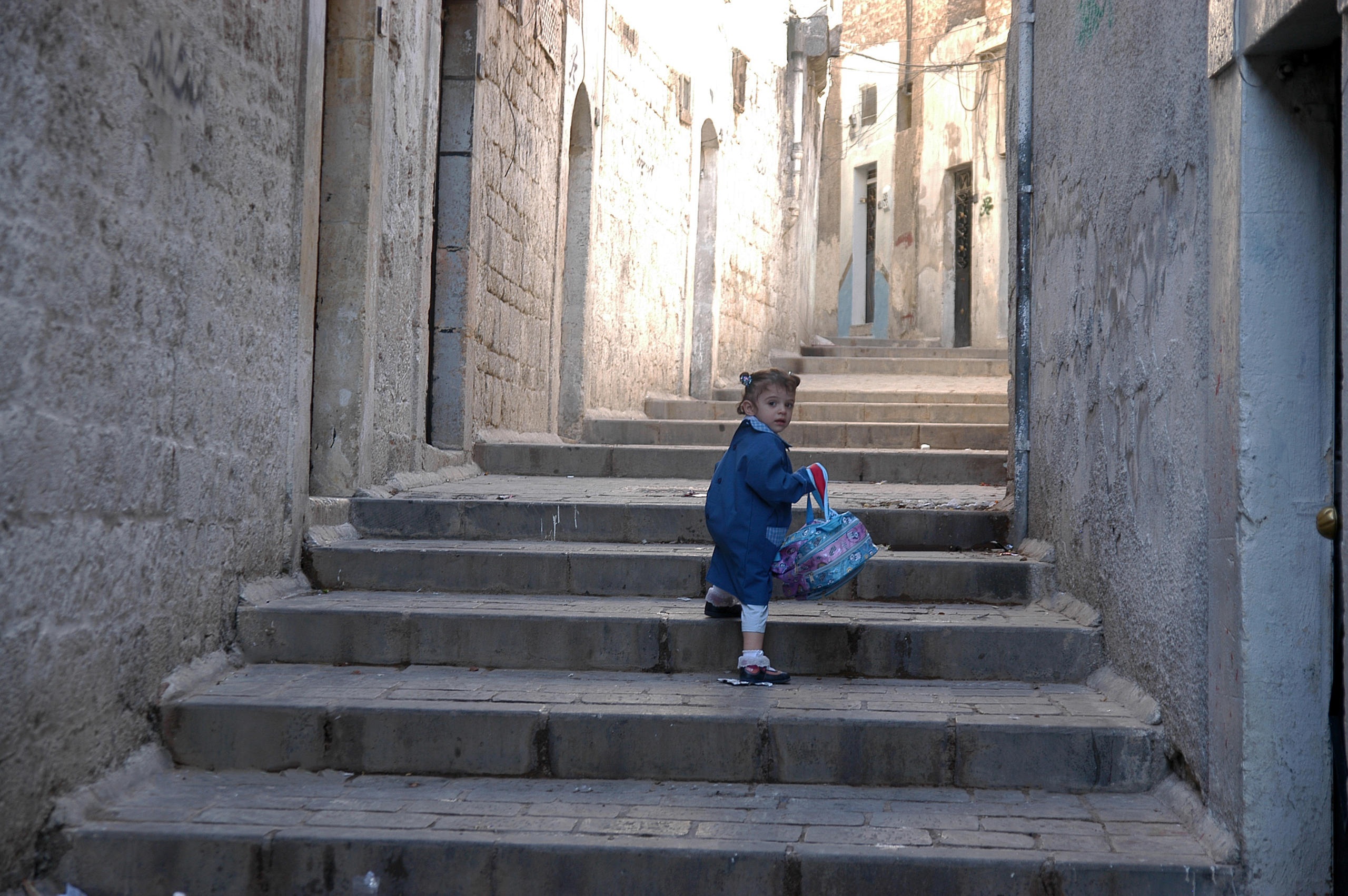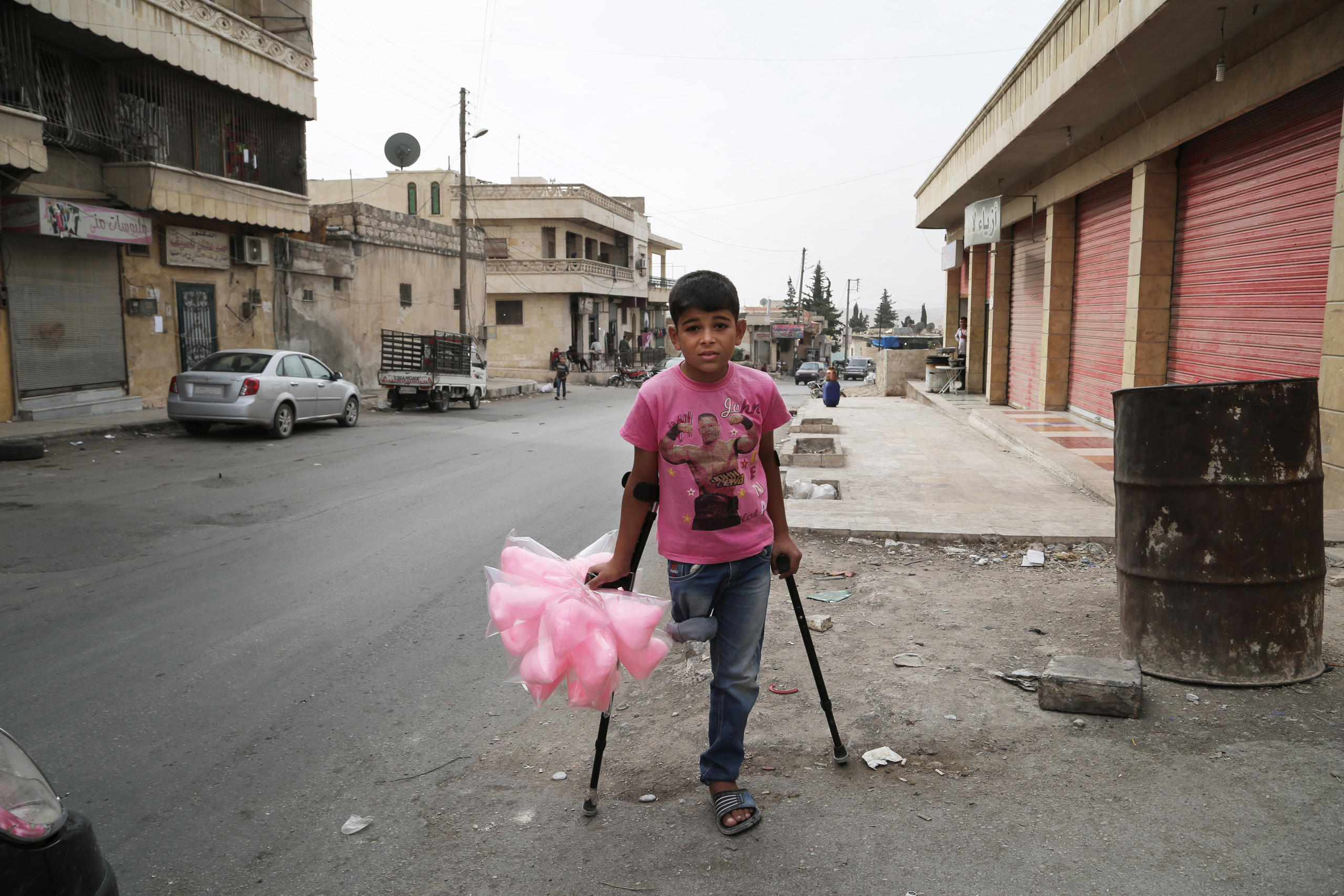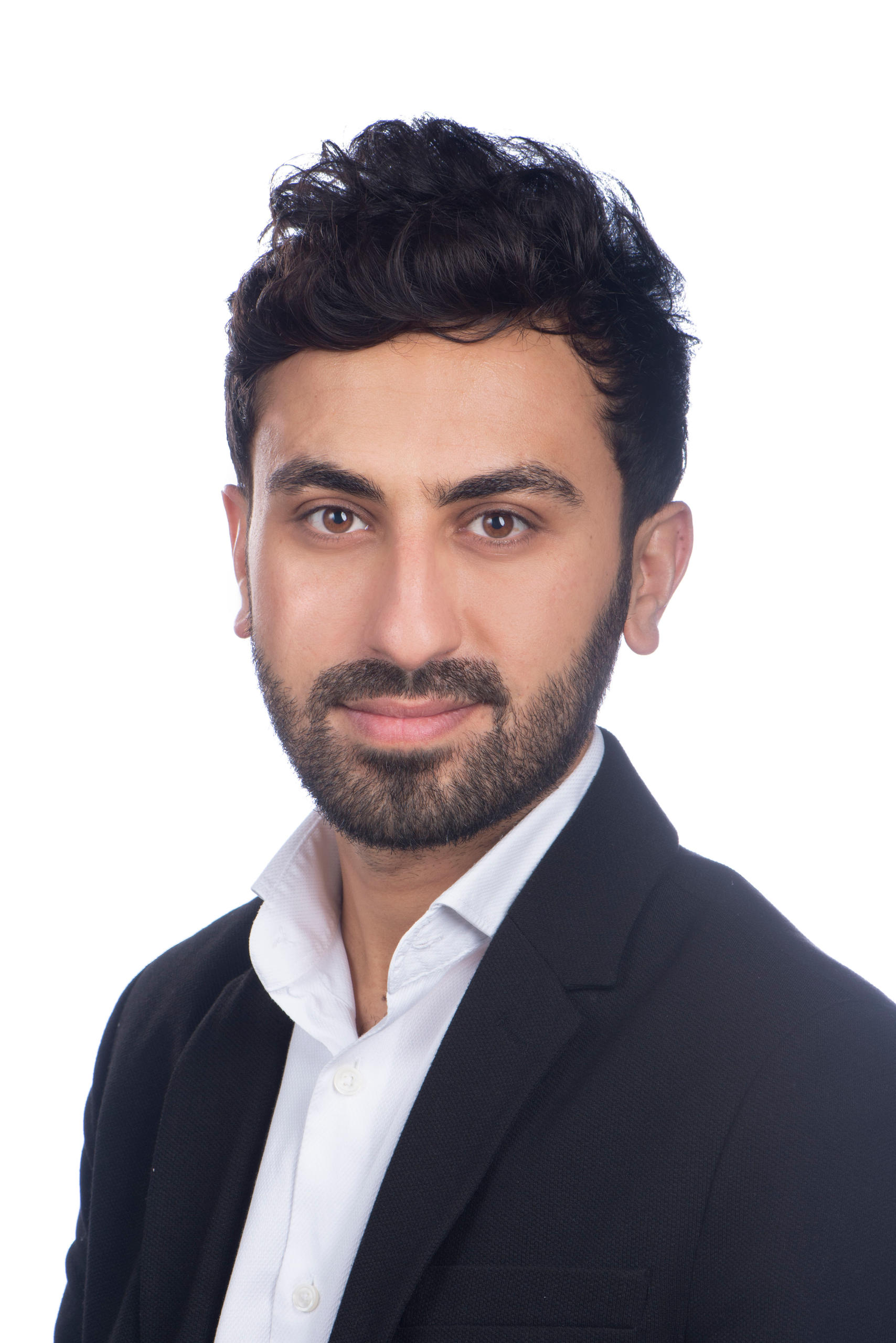Why do we need a free press?

Defending freedom of information is the raison d’être for Reporters Without Borders. To mark swissinfo’s 20th anniversary, we are highlighting the work of the NGO, and its fears a free press is under attack like never before.
A pig-tailed young girl looks over her shoulder at the photographer, trying not to lose her grip on an oversized backpack she’s holding onto by a single strap. A boy, in a second photo, poses for the camera. A wrestler is printed on the pink t-shirt he’s wearing – the colour matches the cotton candy he’s gripping in his right hand.

Both pictures were taken in the Syrian city of Aleppo, but five years apart. The girl’s intact world – is she on her way to school as she climbs the cobblestone steps? – contrasts starkly with that of the boy. It’s neither his shirt nor the candy that captures our attention. Instead, it’s the crutches he’s leaning on. He’s a one-legged amputee, and the photo, taken in 2015, drives home that innocent children are often the victims of war.

Both are part of an online collectionExternal link assembled by journalist and photographer, Maher Akraa, showing Aleppo before and after the conflict. Akraa has a love affair with his city, but for the moment, he can’t go back. After receiving death threats for his reporting on the war and involvement of Syria’s various political factions, he sought and was granted asylum in Switzerland.
The final straw came when he was leaving Turkey to fly to Geneva to attend peace talks on Syria. Before his departure, he was arrested and had his Turkish permit and other documents confiscated. He was eventually allowed to board the plane, but his trip to the Swiss city amounted to a deportation.
When he arrived in Geneva, he came into contact with Reporters Without BordersExternal link (RSF), who have supported him ever since.
swissinfo.ch anniversary event
swissinfo.ch will mark its 20th anniversary by putting the spotlight on trust in the media and the challenges of defending press freedoms at an event in Bern on November 20, together with the Swiss branch of Reporters Without Borders. Maher Akraa and Kurdish reporter, Umut Akar will share their personal experiences of the dangers of working as journalists. Award–winning Maltese journalist, Caroline Muscat, will take the stage alongside Daniela Pinheiro, one of Brazil’s best known investigative reporters, and Galina Timchenko, founder of an influential dissident Russian website, to explain how the media can fight back against governments increasingly hostile to the press. And the author of this article, Dale Bechtel, will explore efforts to re-establish trust at a time when the term ‘fake news’ has become part of our vocabulary, casting an undeserved shadow on even the most reputable news organisations.
“They showed me what my options were and what legal support was available,” Akraa told swissinfo.ch. “This was extremely helpful because I no longer had an existence back in Turkey. I didn’t even have the chance to take my few belongings with me when I left.”
The Swiss section of RSF covered the Syrian reporter’s legal costs incurred during his asylum procedure and funding to purchase computer equipment so he could continue working as a journalist. He has since started his own news network, Brocar PressExternal link, to report on the latest developments in Syria and the Middle East.

Assisting journalists like Akraa is one of four pillars of what the non-governmental organization does. It also works to protect journalists through training and lending them bulletproof clothing, lobbies governments to respect basic freedoms and combats online censorship.
To raise awareness of threats, it publishes the annual World Press Freedom Index.
Denis Masmejan, head of the Swiss branch of RSF, says the 2019 report details how the situation for journalists around the world has deteriorated. “It includes regions like Europe, which have until recently been considered safe havens for journalists but where they can now pay with their lives for carrying out their work.”
The NGO is currently highlighting the unresolved case of the Maltese journalist, Daphne Caruana Galizia, who died in a car bombing in 2017 after reporting on corruption in the island state and investigations for the Panama Papers.
For its part, Masmejan’s Swiss section has been active demanding the Swiss government use its diplomatic channels to take a firmer stance with Saudi Arabia following the assassination in 2018 of journalist Jamal Ahmed Khashoggi, and to secure the immediate release of 30 Saudi journalists, bloggers and columnists the NGO says have been arbitrarily detained.
Earlier this year, Switzerland opted out of a joint condemnation of Khashoggi’s killing, signed by all European Union member countries and several others.
Switzerland ranks high, this year sixth, in the index. That position, says Masmejan, is every reason to hold the alpine nation to the highest standards.
“Although freedom of the press is generally well defended, and violations are not comparable to those seen in authoritarian regimes, there are times when we still need to intervene.” RSF condemned two physical attacks on journalists this year during demonstrations in Geneva and Zurich.
In a long-running case, RSF has come to the defence of the French-language newspaper, Le Nouvelliste. It has called on Christian Constantin, the president of the football club, FC Sion, to end the club’s boycott of the paper which it introduced due to Le Nouvelliste’s critical reporting. Not only are the paper’s reporters banned from the press booth at matches and from press conferences, but all club employees, including players, are forbidden from speaking to them.
“For press freedom to be alive, it must be exercised to the maximum, everywhere and at all times,” says Masmejan.

In compliance with the JTI standards
More: SWI swissinfo.ch certified by the Journalism Trust Initiative










You can find an overview of ongoing debates with our journalists here . Please join us!
If you want to start a conversation about a topic raised in this article or want to report factual errors, email us at english@swissinfo.ch.